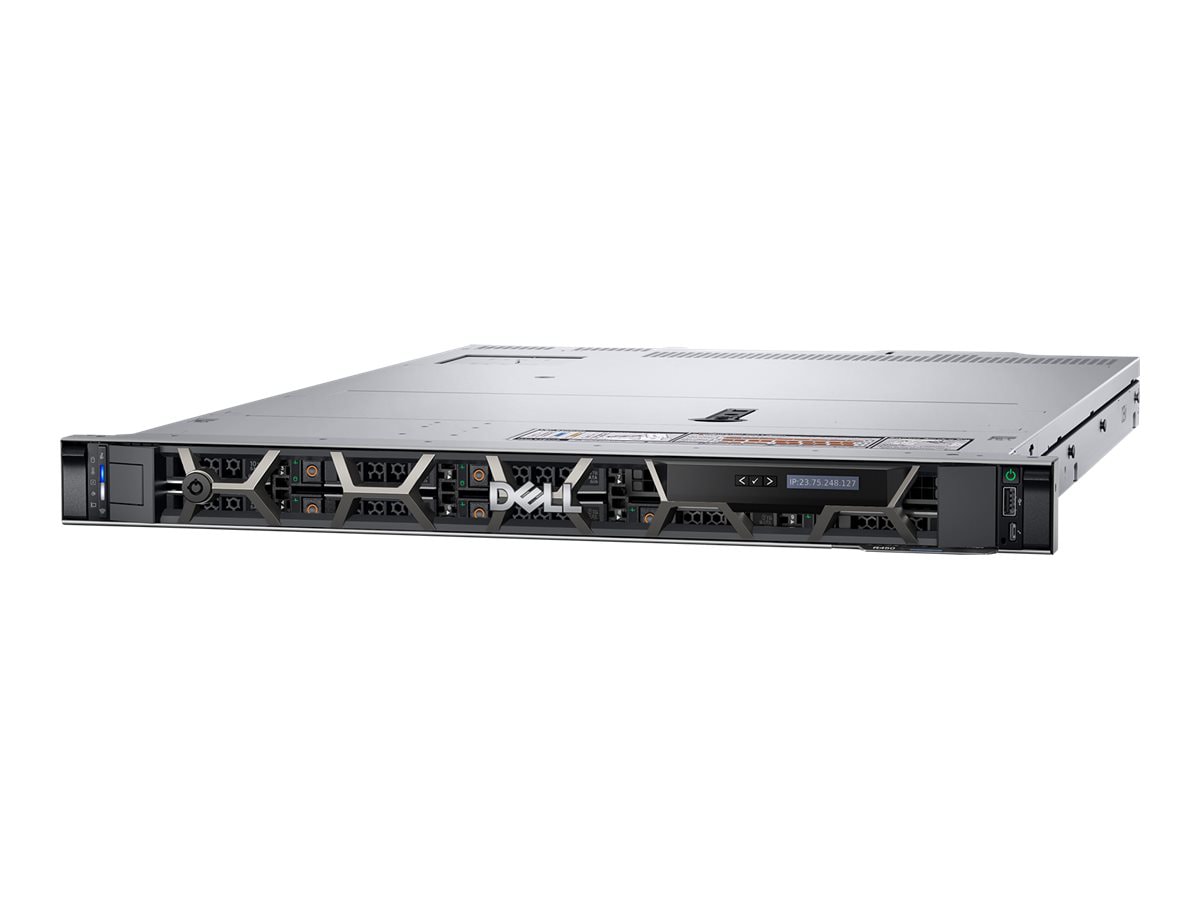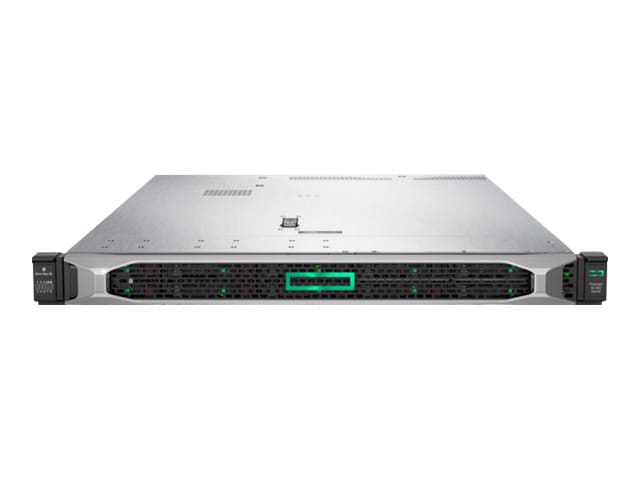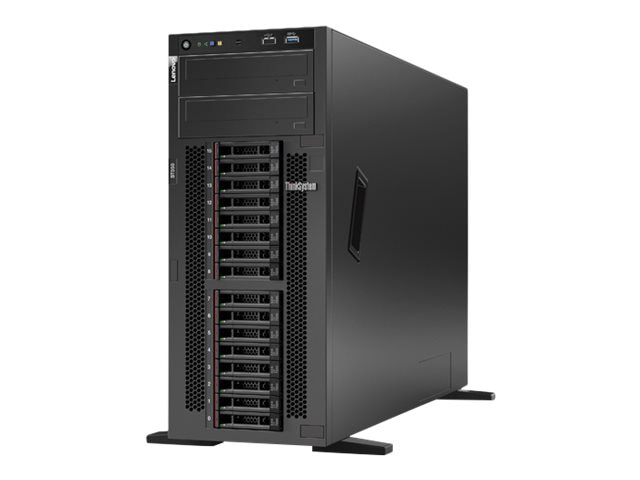-
What Do You Need the Server For?
There are many questions to consider before purchasing your server.
-
Buy or Lease?
The decision typically boils down to long-term costs and maintenance needs.
-
Important Server Specs
Learn all the specs to consider when looking for the best server.
-
Server Memory Considerations
The first thing to know when talking about server memory is that it is NOT storage.
-
Hard Drive Type
Knowing exactly how much storage you need is crucial to not overspending on a server.
-
Operating Systems
Learn about the most common server operating systems (OS.)
-
Server Warranties
When buying a server, remember to investigate all possible manufacturer warranties.
-
Budget & Price Considerations
The cost of a server is more than just a one-time payment.
October 24, 2022
Best Server for Small Business: Server Buying Guide
Whether you are buying a server for the first time or replacing an outdated model, there is much to consider. With this server buying guide, we’ll walk you through everything you need to know to find the best server for small business.
What Do You Need the Server For?
When purchasing a server for your small business, there are many questions that can go racing through your mind. Do I really need the server? Should I buy or lease? Where can a server fit in the office? Who is going to be responsible for server maintenance and upgrading? All great questions—and with this guide, you will be able to answer them all.
The first thing to figure out when buying a server is, "what exactly do I need this server for?" Figuring out your specific needs is crucial to getting the most cost-effective server performance for your business. Knowing exactly how much power or storage you need now can help you save money on initial costs. While you should pad your needs with the model you are purchasing now, upgrades to your server may be possible as your business needs grow.
Common Server Tasks
What will you be using your server for? Here are some of the most common server tasks:
- Securely store company files
- Run shared applications
- Host web servers
- Maintain regular backups
Depending on your needs, certain servers may be a better option for you.
Buy or Lease?
When sourcing a server for your business, you have two general options: lease or buy. Each option has its own advantages and disadvantages. This decision typically boils down to long-term costs and maintenance needs.
- Cost
In general, buying your server can be more cost-effective in the long-term than leasing. Leasing, on the other hand, can be less expensive in the short-term. When making this decision, consider both your short-term and long-term cash flow and budget. Typically, servers under $2,000 are bought outright.
- Maintenance
When purchasing a server, it is always good practice to acquire a maintenance contract with the server as well. That way, if anything goes wrong, it can be fixed as quickly as possible. When leasing a server, make sure to lease from a provider familiar with small businesses and their needs. This same provider should supply maintenance and upgrades for the machines.
Important Server Specs
When looking for the best server for your small business, there are many specs to consider. From form factor to memory, processors, and more, here’s what you need to know:
- Form Factor
From factor is literally the shape of the server but contributes to other factors as well, like storage size and transfer speed. Some of the most common form factors are blade, rack-mountable, and tower servers.
- Blade Servers
TBlade servers combine with each other to fit into a device called a blade enclosure. These enclosures contain multiple blade servers and can share components among all enclosed servers. Typically, shared components include power, cooling, and cabling. Shared elements like these allow for reduced overall power consumption and the need for only one cable for many servers.
Shop Now
- Rack-Mountable Servers
These servers operate as a single stand-alone system. The ability to mount these servers on racks saves space within an office and makes them ideal for many small businesses. Cooling for rack-mountable servers is also handled by built-in fans, saving money and reducing maintenance times. Rack-mountable servers are a viable option for small to medium sized businesses, but they can get quite expensive if many servers are needed. Blade servers are much more common than rack-mounted when the company needs more than ten servers.
Shop Now
- Tower Servers
These large servers most closely resemble a desktop PC and are highly customizable. Tower servers are the best server for a small business that only needs to run a few applications or shared network storage. These servers function like desktop computers, so each tower server needs a display, keyboard, and mouse to operate. Switches may make it possible to share these peripherals, but initially, it is not an option on tower servers.
Shop Now
Server Memory Considerations
The first thing to know when talking about server memory is that it is NOT storage. Memory has nothing to do with the amount of data you can store on your server. Instead, the amount of memory available has a direct correlation to the performance level of the server.
Installed Memory
Knowing precisely what your business needs are will save you money by allowing you purchase as much memory as you need — and not more. Installed memory works by reading and writing information from your server's storage. The more memory you have, the faster your server can operate.
Memory Scalability
The good news is that you’re not stuck with the level of memory you initially purchased. Server memory is not set in stone and can be changed and upgraded over time. The memory inside most servers is scalable. This means that eventually, as your business grows, so can your memory and overall server power. Rather than having to purchase a new server as your needs grow, in many cases, you may be able to simply upgrade your memory components.
Server Processors
CPUs in servers are referred to as processors. These devices interpret, receive, and deliver instructions to the rest of the machine. Processors are also responsible for processing data and performing tasks like serving web pages. Server processors are designed to work 24/7 and are not interchangeable with a desktop CPU. When seeking the best server for small business, consider the speed, type, quantity and scalability of the server’s processors:
- Processor Speed
The rate at which a processor works is called the clock speed. Seen often in Hertz (GHz), this number is the speed at which the processor can function and give instructions to the rest of the machine. The faster the clock speed, the more powerful the processor in most cases.
- Processor Type
There are many types of processors out there, and server processors have specific requirements that others might not meet. Server processors undergo rigorous testing to ensure they can function optimally 24/7. Additionally, server processers come with Error Code Correction or ECC. This technology allows processors to repair memory errors that affect stability on their own.
- Processor Quantity
Sometimes, servers need more than one processor. This is normal. Specific applications or hosting multiple web servers may require significantly more power than a single processor can provide, and most servers are designed with that in mind.
- Processor Scalability
Depending on the type of server your business is running, processors may be able to be scaled to meet your company’s needs. Say you are using blade servers and need to add more power to run a new application. You could potentially hot swap a new blade into an enclosure to add another processor's power or more memory. Scalability as a specification that will tell you the maximum memory supported by a server.
Hard Drive Type
Hard drives for servers share many things with their PC counterparts. Like consumer devices, server hard drives come in forms such as SSD and HDD. SSD or Solid-State Drives are always faster than HDDs, because they are a flash-based technology with no moving parts. Like memory, knowing exactly how much storage you need is crucial to not overspending on a server.
SAS Drives
Capable of blazing-fast speeds, SAS hard drives are reliable and ideal for storing operating systems or data that is accessed frequently. These drives are well suited for 24/7 workloads, but they tend to be more expensive than their counterparts.
SATA Drives
Offering the cheapest cost per GB storage, these drives are not ideal for primary file storage due to slow transfer speeds. These are best used for data that is accessed occasionally, not daily. SATA drives can be either an HDD or SSD, but SSD solutions tend to be very expensive to implement in server use.
Operating Systems
Server operating systems (OS) are similar to their PC counterparts and come in multiple versions. Unlike a PC OS, however, server operating systems have more features designed around server functions and are less user-friendly to the untrained. Here are some of the most common server operating systems:
Windows
The most popular and familiar operating system, Windows, offers more base applications than any other OS. There are a few different versions of Windows you could use depending on your business needs.
Windows Home Server. Designed for homes with multiple machines that wish to share files, automate backups, and enable remote access. This basic OS is only suitable for a smaller business that has few server needs.
Windows Server 2019. Some servers come with Windows Server pre-installed, which can save you some money on initial cost. This popular operating system has three configurations to help meet your business needs:
- The Windows Server Essentials edition supports up to 25 users and 50 devices. It does not require a CAL and is ideal for small businesses with less users or devices.
- The Windows Server Standard edition supports up to 75 users and is much more robust than Essential. It does require a Windows Server CAL and is designed for optimal use with physical environments that have minimal virtualizations.
- The Windows Server Datacenter edition is designed for highly virtualized data centers and cloud environments. It also requires a CAL.
macOS
Incredibly user-friendly, macOS has seen a rise in popularity in recent years. The ease of use and lack of regular maintenance makes it a good starter choice for any company with basic server needs like automated backup or application sharing. macOS can share files with Windows machines, but make sure employees are comfortable with the new OS before making your final decision.
Server Warranties
As with purchasing any expensive tech, obtaining the proper warranty is critical in ensuring your device is always functioning properly. When buying a server, remember to investigate all possible manufacturer warranties. Having a third party maintain and upgrade your equipment will save you time and human resources. When leasing a server, all maintenance and scheduled upgrades should be handled by the lease provider, allowing the business to focus on core work.
Budget & Price Considerations
The cost of a server is more than just a one-time payment. Tasks like routine maintenance, scheduled upgrades, and troubleshooting various issues can cost your company valuable time and money. Remember to always account for these costs when shopping for a server. Having a budget in place based upon your needs is the best way to make sure you do not overspend on unnecessary features when buying a server. Just don't forget to account for continuing costs as a part of that budget.
A Quick Summary
Investing in a server is a big step for any small business. Before starting your search, you should determine precisely why you need a server. Once you’ve identified your specific needs, begin looking into whether buying or leasing a server is the right choice. Typically, an initial cost of $1,500 to $2,000 is where companies start to see a lease become more affordable than an outright purchase. When leasing a server, there will be recurring monthly costs, but server maintenance will be out of your hands, saving you valuable time.
Be sure to consider the specs we mentioned above and how they might apply to your specific needs. Just remember that the server you purchase is not set in stone. Most servers can be upgraded and customized as your needs evolve.
We hope that this server buying guide has helped you to determine the best server for your needs. If you’re ready to shop, explore the many servers and server accessories available at CDW today!




